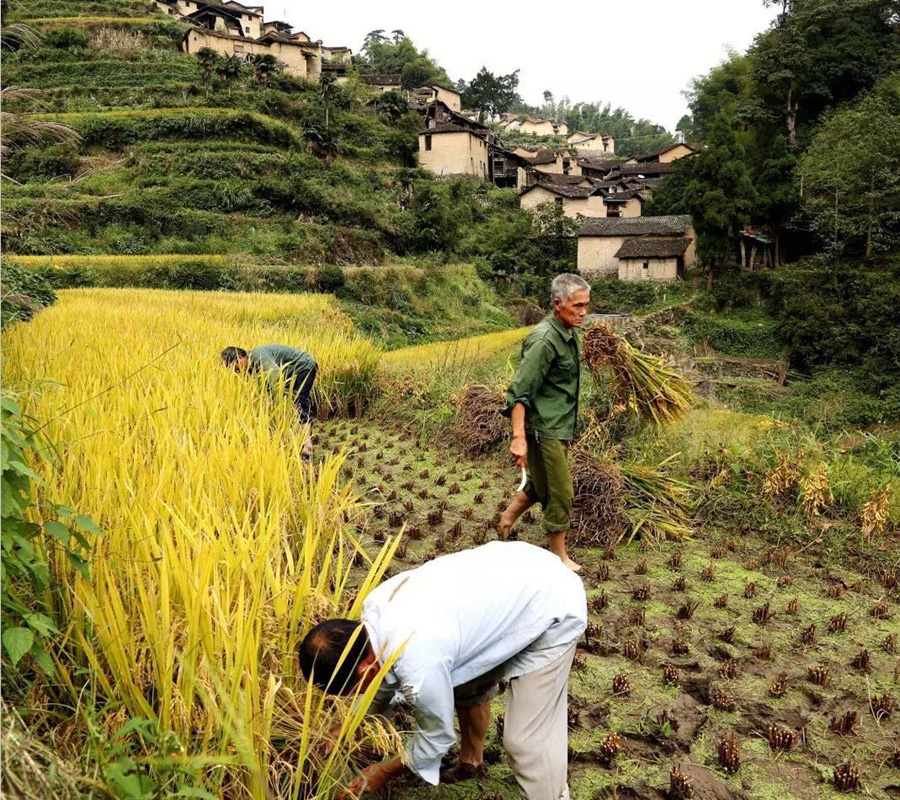Infusion of fresh blood gives villages fresh appeal


Meng Xuefen, 31, a single mother, says she decided to return to Damushan tea valley, 27 kilometers from Pingtian, running a teahouse designed by Xu Tiantian, an architect in Beijing, after saying goodbye to her life in the city fascinating with luxury brands.
"I fell in love with the teahouse at first sight," she says. "The environment is gorgeous."
The teahouse is in a tea garden in the Damushan area.
Although most villagers in the area work in the tea industry, no one had explored and promoted local tea culture or. Meng thus became the first person to do so, using the teahouse as the venue for a training center in the art of tea.
She invited professors from colleges to provide training courses for locals, sometimes free for farmers.
The training center has gained a good reputation, and as a result many tea lovers traveling in the area have turned up wanting training.
Last year Meng came up with the idea of reviving a local tea brand that employs handcraft tea skills and calls for tea leaves picked from tea trees at least 20 years old. To find the best quality tea Meng says she has visited all the villages in the area, and her brand has become popular among the young.
"I know some people have come back to the village to get into the tea industry and learn traditional tea production skills, all of which used to be done by the old."
It is just a matter of time before more young people take up residence in the village, giving it yet more vitality, she says.
Ye Guofu, 63, also believes that in three to five years young people will come back to Daitou village, located on a mountain at an attitude of nearly 1,000 meters.
Ye is one of the youngest in Daitou village, most of whose fewer than 100 inhabitants are in their 70s or 80s, and most of whom used to live higher up in the mountains.
Old people seldom go out of the village, the nearest county being about 23 kilometers away, and there is no public transport.
Last year terraced rice fields attracted thousands of tourists on a single day when the village staged a farm activities event.
In 2014 the village introduced a kind of rice suitable for growing at high-attitude, and it has become very popular. Each year when the rice goes on sale at harvest time it quickly sells out, even at 40 yuan ($6.27) a kilogram, four times the normal market price.
"The only people who do rice farming are old folk, which is why production is so low," Ye says.
Some middle-aged villagers have said they plan to return from cities, but Ye says the village needs young people to set up a brand and help sell their products through e-commerce.
"I'm confident more people, including the young, will come back," he says.
dengzhangyu@chinadaily.com.cn


















